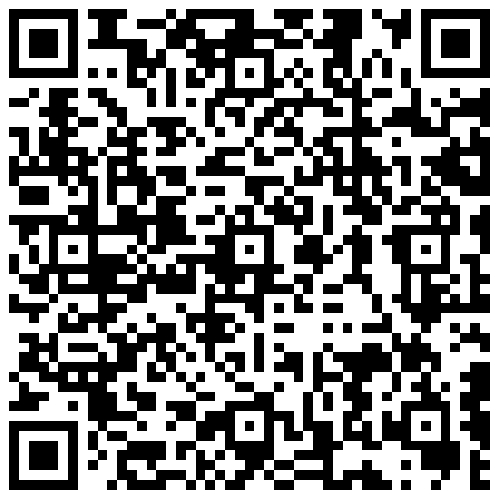
烟业智汇

零售户在线

微薰

手机版

一家名为 Havana Docks(哈瓦那码头)的美国公司在古巴革命前拥有经营哈瓦那港的特许经营权,1960年10月,菲德尔·卡斯特罗终止了特许经营权,和雪茄行业的很多企业一样,这家公司被古巴国有化。
2019年,这家公司起诉了美国的四家邮轮公司:嘉年华号、挪威号、地中海邮轮、皇家加勒比号。这四家邮轮公司从事商业观光活动,运输了几十万游客前往哈瓦那。Havana Docks依据1996年通过的一份名为古巴自由与民主团结法案( Cuban Liberty and Democratic Solidarity )中的第三部分,规定:1959年1月1日或之后被古巴政府征收的运输利益,应由承接这种利益的美国国民赔偿经济损失。由于这个条款可能会引发几百起针对美国公司或者外资公司的诉讼,并且涉及和古巴有正常经贸往来的美国盟国,所以二十多年来历任美国总统都放弃实施这部分条款。2019年,时任美国总统的特朗普决定实施第三部分条款, Havana Docks得以向几家邮轮公司提起诉讼,寻找经济赔偿。
在邮轮公司的辩护中,他们引用了1996年《自由法案》中的一项豁免,该法案允许在“合法前往古巴”时使用运输设施和工具。根据他们向法庭提供的材料,邮轮公司前往古巴的旅行构成“合法旅行”,在奥巴马政府期间,他们已经明确获得美国政府的许可、授权和鼓励,这种商业航线是双边关系正常化的一部分。
但是贝丝·布鲁姆(Beth Bloom)法官驳回了这些观点,裁定邮轮公司从事了禁运限制法令所规定的“不允许的旅行和旅游活动”。这些活动包括参观雪茄吧、朗姆酒酒吧 、参观海明威故居( Ernest Hemingway’s home)、乘坐老爷车观光哈瓦那、参观贝拉斯艺术( Bellas Artes )博物馆、游览哈瓦那历史悠久的夜总会热带酒店(The Tropicana Cabaret)。
在长达168页的裁决书里,布鲁姆法官写道:限制的旅行活动包括参观地标、观看演出、喝朗姆酒、抽古巴雪茄、购买纪念品、在天然水域游泳等。
如果双方不能达成和解,法庭的陪审团将在5月份听取有关此案的证据,并确定邮轮公司为古巴的商业旅游应该支付的赔偿金。
参考文章:
A federal judge in Miami this week ruled that four major cruise lines are liable for using port facilities that were expropriated after the Cuban revolution. In her 168-page ruling, Judge Beth Bloom wrote that the cruise ship companies—Carnival, Norwegian, MSC Cruises and Royal Caribbean—had engaged in “trafficking activities” by porting in Havana and bringing hundreds of thousands of passengers to tour the city.
“By using the [Havana] Terminal and one of its piers in various ways, Carnival, MSC SA, Royal Caribbean and Norwegian committed trafficking acts,” U.S. District Judge Beth Bloom concluded, according to the Miami Herald.
The ruling sets the stage for the cruise lines to potentially pay millions of dollars in restitution to a U.S. company called Havana Docks, which owned the concession to operate the port of Havana at the time of the Cuban revolution. In October 1960, Fidel Castro terminated the concession, and nationalized the holdings of the company, making them property of the state. The same thing was done to Cuba’s cigar industry.
In 2019, Havana Docks sued the four cruise lines, using “Title III,” a controversial clause of the Cuban Liberty and Democratic Solidarity (LIBERTAD) Act. Passed in 1996. the law states that “any person that . . . traffics in property which was confiscated by the Cuban Government on or after January 1, 1959, shall be liable to any United States national who owns the claim to such property for money damages.” Since the clause threatened to unleash hundreds of lawsuits against both U.S. and foreign companies, offending allies who have normal economic relations with Cuba, for more than 20 years U.S. presidents waived implementation of that section of the Libertad Act. In 2019, however, President Trump decided to implement the Title III provision, allowing the suit by Havana Docks seeking damages to be filed.
In their defense, the cruise companies cited an exemption in the 1996 Libertad Act that allows “transactions and uses of property” in the use of “lawful travel to Cuba.” Their tours to Cuba, according to court submissions, constituted “lawful travel” because they had been explicitly “licensed, authorized and encouraged by the U.S. government” during the Obama administration—and even the Trump administration until 2019—as part of the normalization of bilateral relations.
But Judge Bloom rejected those arguments, ruling that the cruise lines had engaged in “impermissible travel” and “tourist activities” prohibited by embargo restrictions. Among the activities she cited that did not meet the criteria for lawful travel were excursions to cigar and rum bars, a trip to Ernest Hemingway’s home, the “Explore Havana by American Classic Car” tours, visits to the popular museum of Bellas Artes and evenings at Havana’s historic nightclub, The Tropicana Cabaret.
“[It] is a stretch of the people-to-people travel regulation,” Judge Bloom wrote in her ruling, “to encompass tourist activities: visiting landmarks, watching shows, drinking rum, smoking Cuban cigars, buying souvenirs, and swimming in natural pools.”
Unless a settlement takes place, a Miami jury will hear evidence in the case in May, and determine the level of compensation the companies must pay for facilitating travel to Cuba.

笃行致远 2024中国烟草行业发展观察